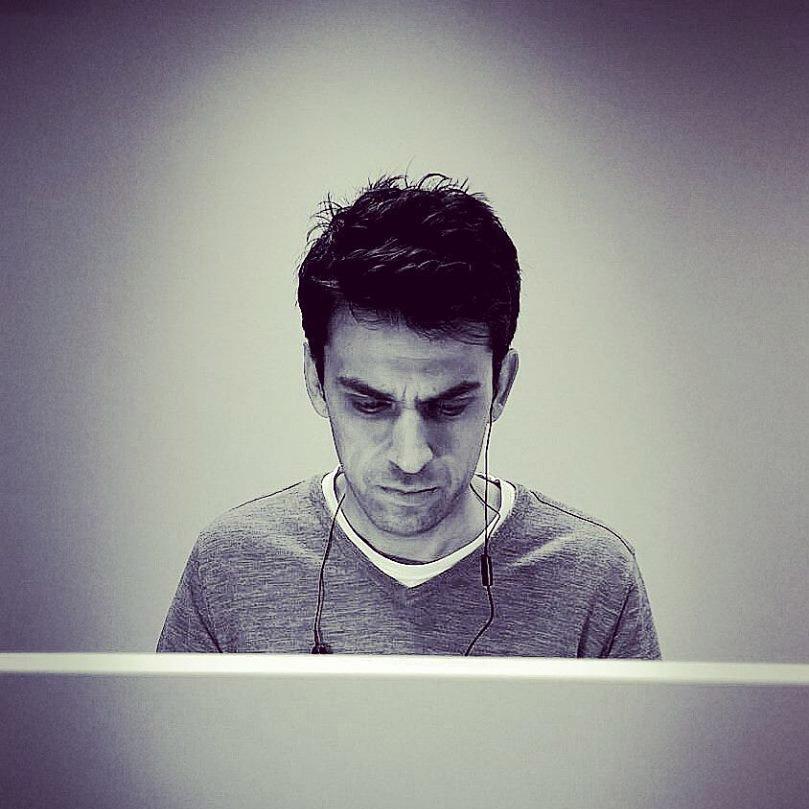Unlocking the complexity of the cloud, by Jacopo Soldani – winner of the 2018 Christos Nikolaou Phd Award
Cloud computing is pretty remarkable. Of that there is no doubt. It’s also highly complex – a myriad of possibilities and potential.

That’s why anyone who can dive deep enough into the cloud and provide tangible solutions to help reduce such complexity to take it a step forward, deserves all the praise in the world in our humble opinion.
Complexity of the cloud
Which bring us to this short version of an excellent story from Jacopo Soldani. He is the winner of the Starttech Ventures-sponsored Christos Nikolaou PhD Award for 2018. This is an award which was established to honor Christos Nikolaou’s career-long contributions in university education and research. It’s aim? To promote and support scientific excellence in the area of service-oriented computing and specifically in the topics Services for the Cloud, Cloud and IoT, Big/smart Data and Data Science, Business processes in the cloud and Applications of services, encouraging talented graduates of PhD granting institutions world-wide to apply for the 2018 who recently completed their PhD.
And this time round Jacopo, an Italian scholar from the Department of Informatics, University of Pisa, came out on top at the for his PhD thesis title “Modelling, analysing and reusing composite cloud applications” to win a €2000 prize.
Abstract from the Christos Nikolaou PhD Award winner
In his own words, Jacopo tells us about his winning entry – “Modelling, analysing and reusing composite cloud applications”. Step forward Jacopo…
How to deploy and flexibly manage complex cloud applications is one of the main concerns in enterprise IT. In my PhD thesis, I am proposing solutions for (i) modelling, analysing and automating the management of composite cloud applications, as well as for (ii) reusing existing solution while developing new applications.
The approach I followed was to develop research contributions with solid theoretical foundations, and with concrete applicability in practice. The problem statement and requirement analysis were driven by concrete motivating scenarios, which we tackled by first providing a formal modelling of the problem and by providing theoretical solutions and PoC/prototype implementations.
The resulting contributions are based on the OASIS standard TOSCA (Topology and Orchestration Specification for Cloud Applications) and they differ and advance the state of the art in (i) and (ii). They can also already impact on the TOSCA community, under two different perspectives. On the one hand, the modelling, analysis and reuse solutions can contribute to the foundations of TOSCA. On the other hand, the prototypes of the solutions presented in my thesis can already be used to model, analyse and automate the management TOSCA applications, as well as to reuse portions of existing TOSCA applications to concretely implement components of new applications.
Orchestrators are the key
In the long-term, the contributions contained in my thesis can also be helpful for developing orchestrators of composite cloud applications that manage such applications in a semi- or fully-automated manner. Such orchestrators can reduce the effort currently devoted to managing composite cloud applications, at the price of requiring a description of their components. To concretely impact in the IT industry, such a price must become worthy to pay.
In this respect, approaches like those contained in my thesis seem promising. If a modelling like that I propose will get accepted, third-party components will be already equipped with their own modelling, as the components’ developers will have specified it. This would mean that application developers would have to specify the structure and management behaviour only of the application-specific components, which is well-known as such components are those implemented by the developers themselves.
Application developers could also abstractly describe the runtime environments for the application-specific components, which could then be automatically implemented and managed with techniques such as those contained in this thesis. In such a scenario, the effort saved by automating the management of composite cloud applications can pay off the effort needed to describe their management behavior.
And back to me.
In a word, wow. If you are hungry for more, you can watch Jacopo in action here: https://youtu.be/TBvcDXHJ-7k.
And here’s the man himself picking up his award: https://youtu.be/00U4NPiJmR0
Clearly, Jacopo’s efforts in “unraveling” the complexity of cloud were not going to go unnoticed. And this explains why he picked up the award earlier this summer at the SummerSoC. A prestigious summer school and symposium which focuses on service-oriented computing.
What is SummerSoc?
At SummerSoC, renowned researchers and leading industry practitioners from around the world give tutorials and invited talks on current topics from areas such as service-oriented computing. While this is quite a broad term, it encompasses cloud computing, business process management (i.e. service orchestrations), theoretical foundations of services, and applications in/of these areas, especially applications dealing with big /smart data and data sciences.
PhD students present posters of their ongoing work and give plenary presentations of their theses. The agenda ensures that enough time is allocated for a lot of discussions. Participants, as well as being from various corners of the globe, also come from both fields – academia as well as industry.
What is the process?
Interested researchers submit papers that are peer-reviewed. In addition to novel research work, SummerSOC seeks for application and experience papers as well as overview papers. It’s a continuation of a successful series of workshops on Service Science and Engineering, the first of which was held in Crete, Greece (2007). The second was held in Palermo, Italy (2008). Starting from the third, SummerSOC is held regularly every year in Crete – Starttech Venture’s “second home”, if you like.
And finally…
There’s only one thing to say until the next SummerSoC which takes place of course once again in Crete next summer. That’s that’s congratulations again, Jacopo, and live long and prosper!
